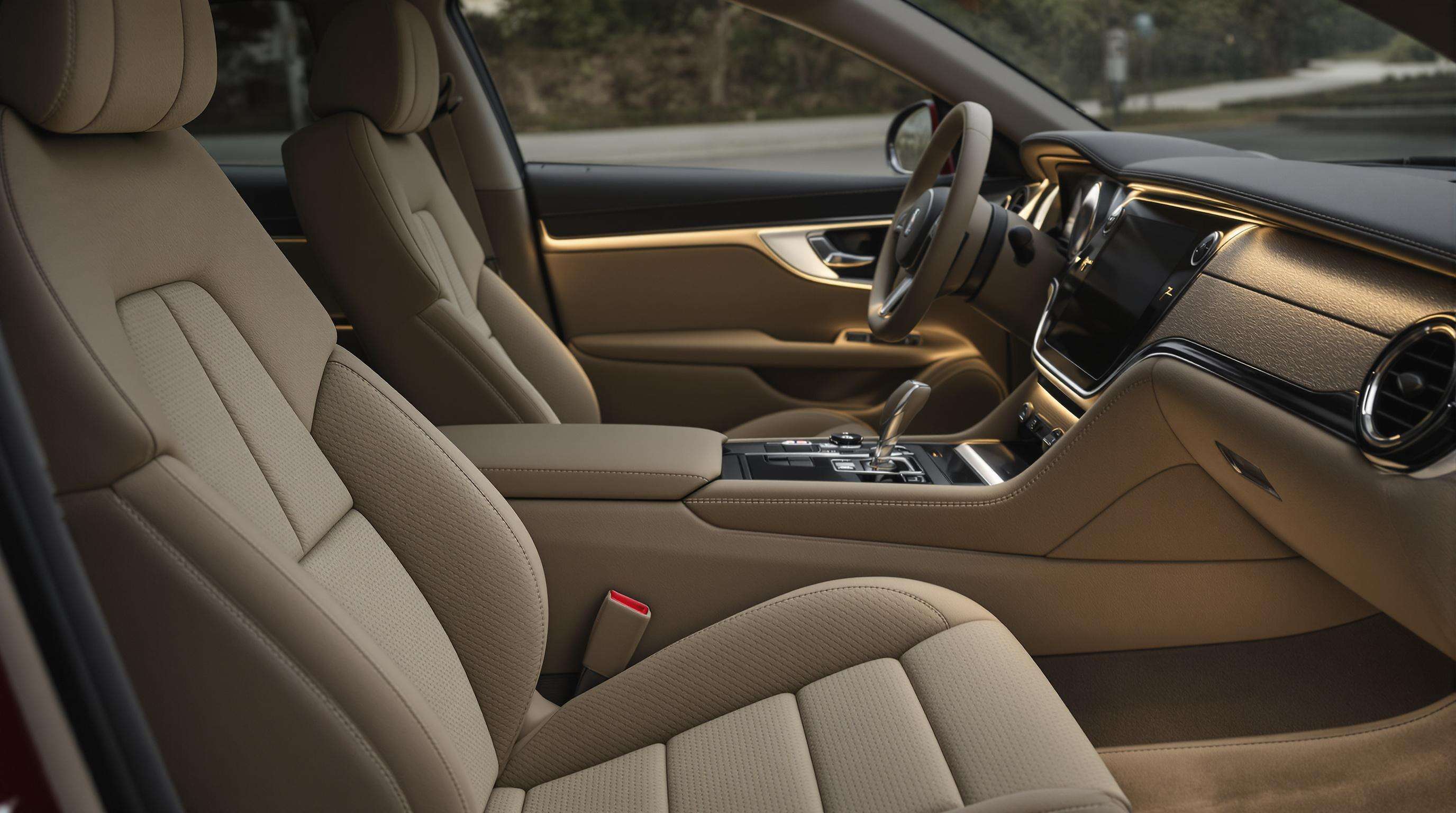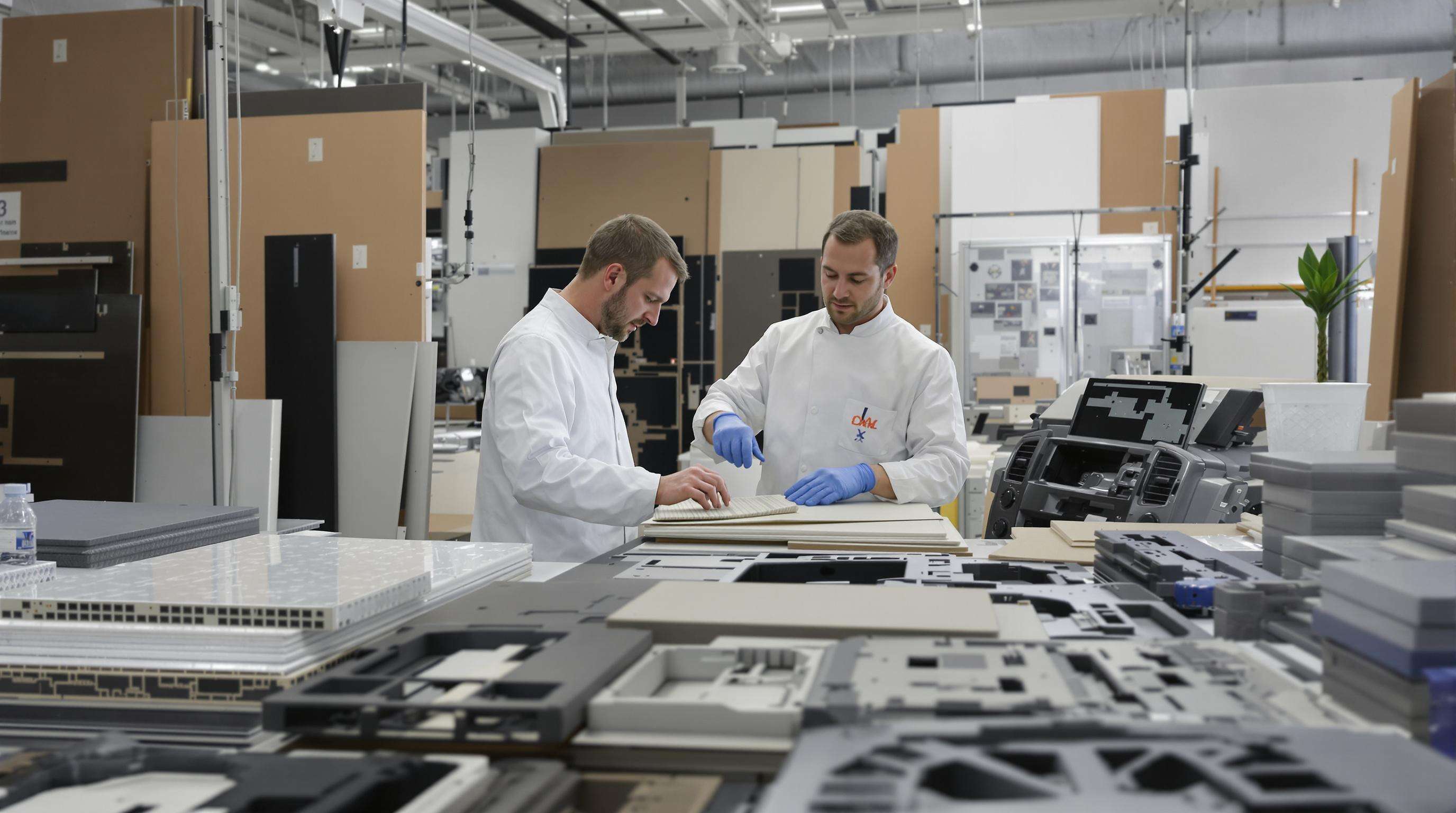Luxury vehicle buyers are increasingly prioritizing sustainability, with 72% of premium segment customers willing to pay more for verified eco-friendly features (2024 Luxury Automotive Survey). This shift is driving Mercedes V-Class customization toward materials such as recycled nylon dashboard panels and biodegradable trim options, seamlessly blending exclusivity with environmental responsibility.
Three key factors are accelerating demand for sustainable interiors:
These trends reflect a broader market transformation where sustainability directly influences purchasing decisions and long-term asset value.
Mercedes-Benz is accelerating its VAN.EA electric architecture to standardize recycled materials across all V-Class trims by 2026. The strategy focuses on:
This integrated approach ensures sustainability is embedded from design through disposal, reinforcing Mercedes-Benz’s leadership in eco-conscious luxury mobility.
Premium manufacturers now use 3.2x more recycled plastics than in 2020, with Mercedes leading in food-grade PET applications. Recent innovations include:
| Material | Traditional Version | Recycled Alternative |
|---|---|---|
| Door panel substrate | Virgin ABS plastic | 94% recycled polymers |
| Headliner foam | PU-based | Soy-based bio-foam |
This transition reduces per-vehicle production emissions by 740 kg CO₂e while maintaining the high standards of comfort and craftsmanship expected in premium vehicles.

The way Mercedes-Benz is using Dinamica® fabric shows that recycled stuff can actually hit those luxury standards people expect. Think about it this way: every single square meter takes around 47 old plastic bottles and turns them into something super soft that feels almost exactly like real suede when touched. A recent report from Autovista Group back in 2023 found these kinds of fabrics account for about 73% of all recycled content used in V-Class seats and door panels now. That's pretty impressive progress for anyone trying to green up car interiors without sacrificing quality or comfort.
Recycled interior materials are closing the performance gap with conventional leather:
| Characteristic | Recycled Fabrics | Traditional Leather |
|---|---|---|
| CO₂ Emissions | 5.2 kg/m² | 17.3 kg/m² |
| Water Usage | 890 L/m² | 3,600 L/m² |
| Warranty Coverage | 8-year UV resistance | 10-year durability |
While traditional leather still offers slightly longer lifespan, recycled fabrics reduce environmental impacts by 64% and provide comparable resistance to stains and wear—making them a compelling alternative for eco-conscious buyers.
The V-Class features interior panels designed with sustainability in mind, providing environmental benefits throughout their entire life cycle. The nylon floor mats are crafted from old fishing nets, which cuts production energy needs by nearly 60% compared to making them from new materials. These mats stay strong even after driving over 150 thousand miles. When it comes time for disposal, everything remains fully recyclable. Each car keeps around 22 kilograms of plastic out of landfills this way. Luxury doesn't have to come at nature's expense when manufacturers think ahead about what happens after ownership ends.

Mercedes-Benz is taking customization of the V-Class to new levels by working closely with companies that specialize in eco-friendly materials. The partnership has led to some pretty cool closed loop manufacturing setups. Around three quarters of all those little bits left over from making interior panels get turned back into brand new parts instead of going to waste. Suppliers are also teaming up on creating these special plant based plastics and recycled aluminum mixes. What's great about this approach is that even though they're using greener stuff, everything still holds up under tough driving conditions. And there's another bonus too these new methods cut down on factory emissions by almost a third when compared to what we used to do before.
In 2023, working together with some textile experts from Milan has led to an impressive process where they turn around 18 million used plastic bottles each year into these super light dashboard panels. They've developed this special weaving method that mixes old PET materials from consumer products with natural hemp as a base layer. What's really cool is that this combination stands up to scratches about 40% better than those standard leather substitutes we see everywhere now. And here's another smart feature: because of how it's designed in modules, people can just swap out the parts that get worn down instead of replacing whole sections. This approach cuts down on wasted materials while still letting vehicle owners personalize their premium vans over time without breaking the bank.
Despite successful pilots, mass adoption faces obstacles:
To overcome these, Mercedes employs AI-driven material testing platforms that reduce validation timelines by 60%, helping maintain customization lead times under eight weeks without compromising quality or compliance.
The Mercedes V-Class is getting some pretty interesting upgrades lately, especially when it comes to using recycled materials that are both green and actually work well. Interior designers have started mixing in stuff made from plants along with plastic they've pulled out of oceans for things like dashboards and seat covers. This has cut down on how heavy the inside feels by around 15%, according to some reports from last year's Automotive Sustainability Study. What makes these new materials stand out? They come with cool features like touch responsive surfaces and coatings that fight germs. So even though they're environmentally friendly, they still manage to maintain that luxury feel while making daily driving experiences better too.
Market forecasts suggest that the worldwide business for green car materials will hit around 74 billion dollars by the year 2030. This growth comes from tougher rules on emissions coming out of Europe plus more people wanting luxury vehicles that leave no carbon footprint behind according to Frost & Sullivan's latest report from 2023. More than half of those buying high end multi purpose vehicles these days care about having interior parts made from recycled stuff they can personalize. Take Mercedes Benz for instance they want all surfaces in their V Class models to be made from recycled material within ten years time frame starting from now which shows how companies are trying to match technological advances with real lasting changes toward protecting our environment.
Tests conducted independently have found that these recycled composite materials can handle over 200,000 abrasion cycles before showing wear, which beats the standard 150,000 cycle mark for regular leather according to research from IMechE in 2024. The big issue still hanging over this technology though is keeping colors vibrant when exposed to lots of UV light, which has led researchers to experiment with various nano-coating solutions lately. Even with some doubts floating around the industry, Mercedes recently announced they'll back their eco-friendly panels with a full ten year warranty on durability, something that suggests pretty solid faith in how well these green materials actually hold up over time.
Luxury vehicle buyers are increasingly aware of the environmental impact of their purchases. A shift towards sustainability aligns with their values, and 72% of premium segment customers are willing to pay more for eco-friendly features.
Materials such as recycled nylon, biodegradable trim options, Dinamica® sueded fabric, and recycled plastics are being introduced for customization in the Mercedes V-Class.
Mercedes-Benz is accelerating its VAN.EA electric architecture to standardize recycled materials across all V-Class trims by 2026, focusing on closed-loop plastic recycling systems, plant-based leather alternatives, and modular designs.
Recycled interior materials have shown comparable resistance to stains and wear with reduced environmental impact. Mercedes-Benz offers a ten-year warranty on durability for their eco-friendly panels.
Challenges include higher costs for recycled materials, limited thermal stability, and lengthy certification processes. Mercedes-Benz uses AI-driven platforms to expedite material testing and maintain customization lead times.

Copyright © 2024 Shenzer Automobile - Privacy policy